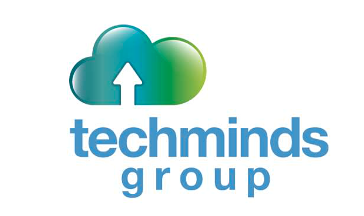
Beyond the Harvest: How ERP is Rewriting the Rules of the Produce Supply Chain
From farm to fork, a new wave of ERP technology is promising greater transparency, efficiency, and resilience in the fresh produce industry. But can these systems truly level the playing field?
Beyond the Harvest: How ERP is Rewriting the Rules of the Produce Supply Chain
By Michael Bennett
For decades, the fresh produce supply chain has operated with a degree of opacity. From the field to the supermarket shelf, tracing the journey of a head of lettuce or a pint of berries was often a logistical nightmare. But a quiet revolution is underway, powered by a new generation of Enterprise Resource Planning (ERP) systems tailored specifically for the unique challenges of the produce industry. This week at the New York Produce Show, Techminds Group, in partnership with Aptean, is showcasing a platform designed to bring unprecedented visibility, efficiency, and – crucially – trust to this vital sector.
While ERP systems aren't new, their application to fresh produce has historically been hampered by the industry's complexities – short shelf lives, seasonal variations, stringent quality control, and a fragmented network of growers, packers, and distributors. Traditional, one-size-fits-all solutions often fell short. However, companies like Techminds and Aptean are now offering platforms built on flexible cloud infrastructure, leveraging Microsoft Dynamics 365, designed to address these specific pain points.
“The produce industry deserves technology that’s as fresh, fast, and resilient as the products it delivers,” says Mani Subrahmanyam, CEO of Techminds Group. “Our ERP brings real-time intelligence from field to fork – giving produce businesses total control of their supply chains.” But is that control accessible to all businesses, or is this technology creating a new digital divide?
The Rise of Traceability – And Why It Matters
The demand for traceability isn’t simply a matter of consumer preference; it's increasingly a regulatory necessity. The Food Safety Modernization Act (FSMA) places a significant burden on producers to demonstrate the safety and origin of their products. ERP systems like those offered by Techminds and Aptean are central to meeting these requirements. By digitally tracking produce from seed to sale, businesses can quickly identify the source of contamination in the event of an outbreak, minimizing risk and protecting consumers.
“The ability to pinpoint the origin of a problem within minutes, rather than days or weeks, is a game-changer,” says an industry analyst familiar with the technology. “That speed is crucial for containing outbreaks and maintaining consumer confidence.”
Beyond food safety, traceability also supports sustainability initiatives. Consumers are increasingly interested in knowing where their food comes from and how it was produced. ERP systems can provide data on farming practices, transportation methods, and environmental impact, enabling businesses to market their products more effectively to environmentally conscious consumers.
Efficiency Gains – But at What Cost?
While traceability is a major driver of ERP adoption, the benefits extend far beyond food safety. By automating processes like grower settlements, inventory management, and quality control, ERP systems can significantly reduce operational costs and improve efficiency. Real-time data analytics provide insights into production trends, enabling businesses to optimize their operations and make more informed decisions.
However, the implementation of these systems isn’t without its challenges. The initial investment can be significant, particularly for smaller producers. Furthermore, integrating ERP systems with existing infrastructure can be complex and time-consuming. According to one small farm owner, “It’s a steep learning curve, and it requires a dedicated IT resource, which many of us simply don’t have.”
The cost barrier raises a crucial question: is this technology exacerbating the gap between large-scale, technologically advanced producers and smaller, family-owned farms? While Techminds and Aptean claim to offer scalable solutions to meet the needs of businesses of all sizes, the reality is that smaller producers may struggle to afford the initial investment and ongoing maintenance.
Leveling the Playing Field – Or Widening the Divide?
The promise of ERP technology is to create a more transparent, efficient, and resilient produce supply chain. But to truly realize that promise, it’s essential to ensure that the benefits are shared by all stakeholders. Several factors are at play here. Cloud-based solutions, like those from Aptean, are lowering the upfront costs compared to traditional on-premise systems. Furthermore, companies like Techminds are offering implementation services and training to help smaller producers navigate the transition.
“We’re committed to helping producers of all sizes adopt this technology,” says a representative from Techminds. “We understand that smaller farms may have limited resources, and we’re working to provide affordable and accessible solutions.”
However, the industry as a whole must address the digital divide. Government subsidies, industry partnerships, and educational programs can help smaller producers access the technology and training they need to compete in the modern marketplace. According to an industry analyst, “It's not enough to simply offer the technology; we need to create an ecosystem that supports its adoption by all stakeholders.”
The next few years will be critical for the fresh produce industry. As consumer demand for transparency and sustainability continues to grow, and as regulatory pressures intensify, the adoption of ERP technology will become increasingly essential. The challenge will be to ensure that this technology empowers all producers – not just the largest and most technologically advanced – to thrive in the evolving landscape. The showcase at the New York Produce Show this week is a crucial step in that direction, but the journey towards a truly equitable and sustainable produce supply chain is far from over.
